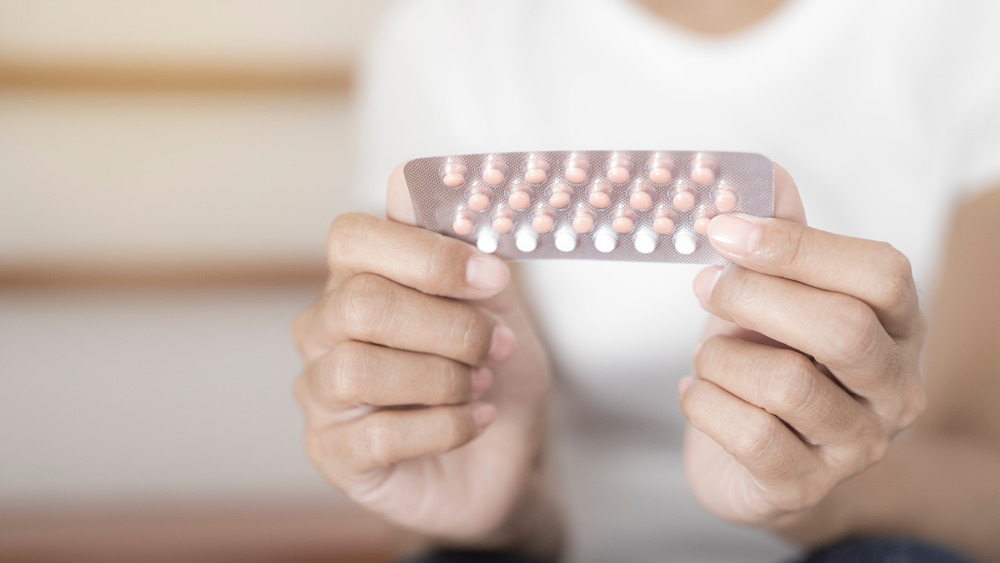The Surprising Effect The Pill Could Have On Asthma Attacks
A new study that followed thousands of women with asthma for nearly two decades found that those who regularly used birth control pills experienced fewer asthma flare-ups (via WebMD). The research, published this month in the journal Thorax, involved tracking the asthma symptoms of more than 83,000 women ages 16 to 45 for 17 years. Using prescription and hospital records, the study found what could be a "small" protective effect after using birth control pills for at least three years, the researchers said.
The findings don't prove a cause-and-effect relationship, study author Bright Nwaru of the University of Gothenburg in Sweden, said. Rather, the study may confirm what some women with asthma have suspected: that their symptoms flare at certain points during their menstrual cycle, perhaps because of fluctuating hormone levels. "Anecdotal evidence suggests that some women with menstrual-related asthma appear to get relief by taking hormonal contraceptives," Nwaru said.
Estrogen levels can affect asthma
Just to be clear: No one is suggesting that women take birth control pills specifically to manage asthma. "This is just a link — so it's not enough [evidence] to use the pill as a treatment," Dr. Purvi Parikh, a clinical assistant professor at NYU Grossman School of Medicine in New York City and national spokeswoman for the Allergy and Asthma Network, told WebMD.
However, other evidence shows that estrogen levels can affect asthma. For instance, boys are more likely to develop asthma before puberty than girls are, but after puberty, the reverse is true, Parikh said. In addition, about one-third of pregnant women with asthma notice that their symptoms improve, while about just as many see them worsen, said Parikh.
The women who took combined birth control pills (those containing estrogen/progestin) were slightly less likely to have severe asthma attacks, meaning those that required treatment with oral corticosteroids, an ER visit, or a hospital admission. The researchers stressed that the protective effect was small — about 6 percent to 9 percent for women who used birth control for at least three years. But because of the large number of participants, Nwaru called the study "robust."


